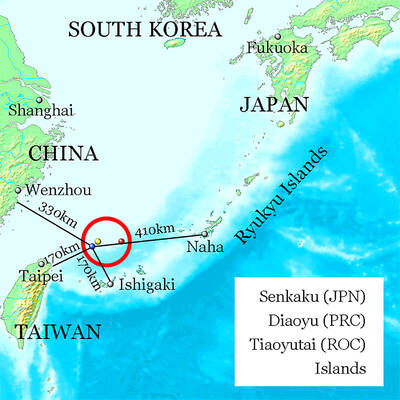The glamorous romance between Richard Li (李澤楷), the youngest son of business tycoon Li Ka-shing (李嘉誠), and starlet Isabella Leong (梁洛施) has hit the rocks in a spectacular smashup over which Hong Kong media have been licking their lips. What had originally been seen as a fairy-tale relationship has now been dubbed by the Chinese-language media as “the breakup of the century” (世紀分手). Papa Li, chairman of Hutchison Whampoa and Cheung Kong Holdings, is widely acknowledged as the richest person in Asia and is ranked the 14th richest person in the world, and this background of great wealth has fueled intense media speculation about the reasons for the separation and the amount of any settlement.
Earlier this week Li junior announced that he would separate from the Macau-born singer and actress also known as Luisa Isabella Nolasco da Silva. In the statement he categorically denied that a “third party” was involved, and stated that there was no financial dispute.
Both parties are keeping tight-lipped about the reasons for the breakup, which has only encouraged speculation. The most popular of the theories is the suggestion that Li formed a connection with 25-year-old model Mandy Lieu (劉碧麗). Lieu has vehemently denied suggestions that she is involved with Li, and Now.com, after extensive coverage of Lieu’s possible part in the breakup, says that the “third party” might be another woman called Mandy but surnamed “Cheung” or “Chong.”

Photo: Taipei times
When Leong was first linked to Li, the relationship was dubbed a “capitalist Cinderella dream” (資本主義的灰姑娘傳奇) come true, and whatever the truth of the allegations, Lieu has now acquired the nickname of the “Cinderella killer” (灰姑娘殺手).
Rumors of a separation payment of US$3.4 million have been reported, though there has been no confirmation. Although unmarried, Leong gave birth to three children by Li junior.
Leong’s prospects, however, are far from bleak. A return to the silver screen is widely rumored and industry insiders estimate her appearance fee would be second only to Cecilia Cheung’s (張柏芝). The Liberty Times (the Taipei Times’ sister paper) goes so far as to suggest she could easily pick up US$1.2 million for a feature appearance. Stay tuned.
Speaking of financial settlements, some details of a compensation payment for former S.H.E member Selina Jen (任家萱), who suffered severe burns to more than 50 percent of her body while filming the TV adaptation of the 1994 movie I Have a Date With Spring (我和春天有個約會) in Shanghai last year, have been released.
The United Daily News quoted unnamed Chinese media sources as saying a settlement worth US$1.5 million has brought the whole tragic incident to a close. This is regarded as a relatively low sum, with estimates based on Jen’s marketability at the time of the accident putting the appropriate figure at US$3.3 million. The paper speculates that the parties involved wanted to draw a line under the matter.
On a happier note, pop singer Fan Fan (范瑋琪) and basketball star-turned-entertainer Charles Chen (陳建州), better known as Blackie (黑人), will tie the knot in May. Earlier this week, the Apple Daily caught the couple at their wedding photo in Taipei’s Xinyi District. Celebrity rags are already drooling at the prospect of the nuptials as rumors are circulating that pop star Wang Lee-hom (王力宏) will be best man, Aboriginal musician Biung (王宏恩) will provide the music and the whole thing will be organized by Chang Hui-mei’s (張惠妹, aka A-mei, 阿妹) agent Edward Chan (陳鎮川). The Apple Daily estimates that the banquet, already booked for the recently opened W Hotel, will run to 50 tables at least.

The Nuremberg trials have inspired filmmakers before, from Stanley Kramer’s 1961 drama to the 2000 television miniseries with Alec Baldwin and Brian Cox. But for the latest take, Nuremberg, writer-director James Vanderbilt focuses on a lesser-known figure: The US Army psychiatrist Douglas Kelley, who after the war was assigned to supervise and evaluate captured Nazi leaders to ensure they were fit for trial (and also keep them alive). But his is a name that had been largely forgotten: He wasn’t even a character in the miniseries. Kelley, portrayed in the film by Rami Malek, was an ambitious sort who saw in

Last week gave us the droll little comedy of People’s Republic of China’s (PRC) consul general in Osaka posting a threat on X in response to Japanese Prime Minister Sanae Takaichi saying to the Diet that a Chinese attack on Taiwan may be an “existential threat” to Japan. That would allow Japanese Self Defence Forces to respond militarily. The PRC representative then said that if a “filthy neck sticks itself in uninvited, we will cut it off without a moment’s hesitation. Are you prepared for that?” This was widely, and probably deliberately, construed as a threat to behead Takaichi, though it

Among the Nazis who were prosecuted during the Nuremberg trials in 1945 and 1946 was Hitler’s second-in-command, Hermann Goring. Less widely known, though, is the involvement of the US psychiatrist Douglas Kelley, who spent more than 80 hours interviewing and assessing Goring and 21 other Nazi officials prior to the trials. As described in Jack El-Hai’s 2013 book The Nazi and the Psychiatrist, Kelley was charmed by Goring but also haunted by his own conclusion that the Nazis’ atrocities were not specific to that time and place or to those people: they could in fact happen anywhere. He was ultimately

Nov. 17 to Nov. 23 When Kanori Ino surveyed Taipei’s Indigenous settlements in 1896, he found a culture that was fading. Although there was still a “clear line of distinction” between the Ketagalan people and the neighboring Han settlers that had been arriving over the previous 200 years, the former had largely adopted the customs and language of the latter. “Fortunately, some elders still remember their past customs and language. But if we do not hurry and record them now, future researchers will have nothing left but to weep amid the ruins of Indigenous settlements,” he wrote in the Journal of